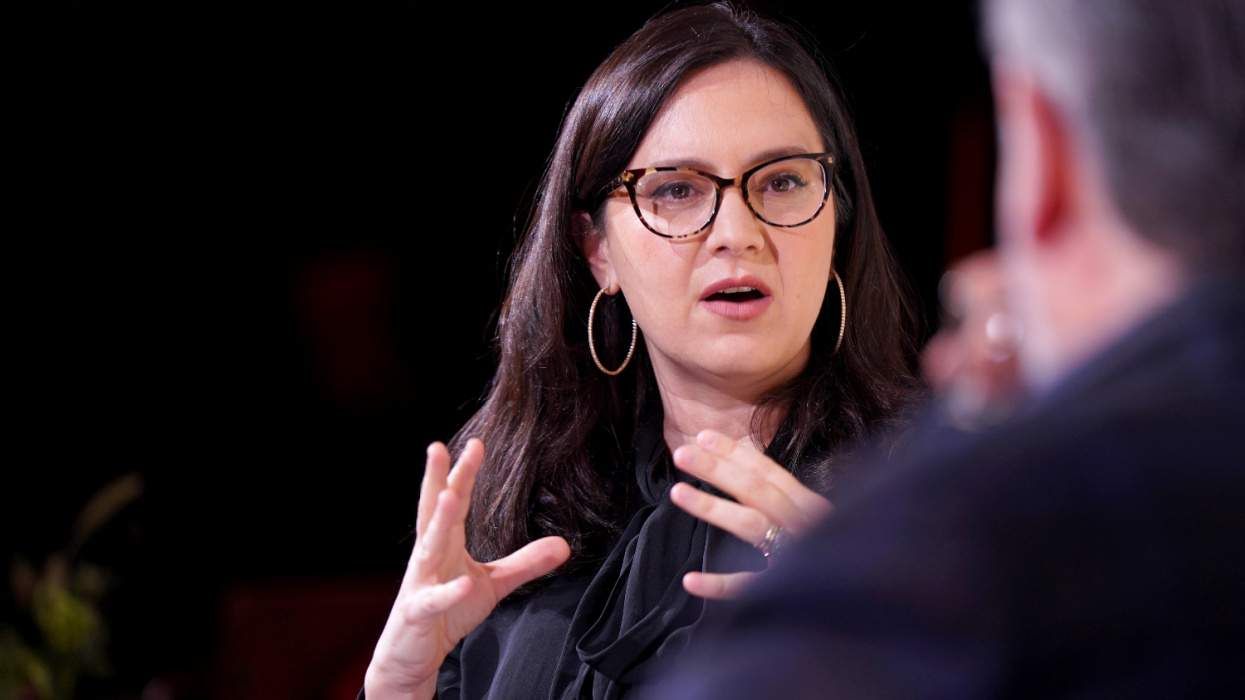For the start of Native American Heritage Month, Google dedicated Monday's Doodle to the late We:wa, a two-spirit leader of the Zuni people of Zuni Pueblo, which is in what is now known as New Mexico.
The late We:wa -- referenced as such in honor of the Zuni's tradition of not using the present tense when referring to a person who has died -- was born sometime around 1849. They were Lamana, Zuni for a two-spirit person. Lamana people were recognized as a third gender that was outside the male and female binary, according to Google. In historical records, the late We:wa and other Lamana were referred to with he and she pronouns.
Lamana were revered for representing harmony and balance. As a Lamana, the late We:wa learned skills that were taught to both men and women. Their talent allowed them to be one of the first Zuni people to sell ceramics and woven items to non-indigenous people. This, according to Google, catalyzed the appreciation of indigenous art.
Mastering the religious, cultural, and historical traditions of the Zuni tribe, the late We:wa became a respected spiritual leader. Their knowledge was so immense that they went with U.S. anthropologists James and Matilda Stevenson to Washington, D.C. to be part of a cultural exchange. In D.C., the late We:wa asked U.S. officials to protect Zuni land from settlers from the east.
"The idea that We:wa was our first ambassador between the U.S. Government and the tribe is very impressive. We:wa learned English to aid our tribal leaders in DC," Doodle artist Mallery Quetawki said. The artist noted that the late We:wa and their husband adopted many children that had no one else to turn to.
"They had a wealthy household--not based on money and material, but on the warmth of [their] character in helping those in need and being in that dual role of spiritual and social guidance," Quetawki added. "We:wa was a caregiver in both our physical and spiritual realms."
Curtis Quam, museum technician and cultural educator at the A:shiwi A:Wan Museum Heritage Center, told Google the late We:wa helped others "understand we are not just Native Americans, we're people."
He added that the Doodle of the late We:wa could help further conversations around inclusion in multiple ways, including for native voices as well as for other marginalized individuals. "Choosing someone as iconic as the late We:wa is contributing to this bigger picture of who we are as people."
















